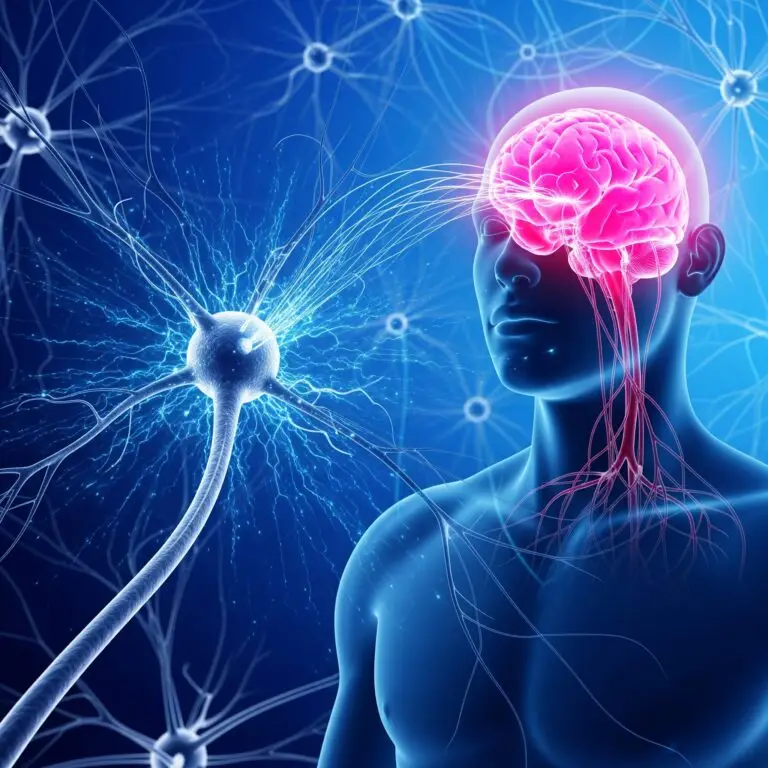Welcome back to “Navigating Life with Motor Neurone Disease” – our comprehensive series exploring MND and its impact. In this second part, we guide you through the typical MND journey, from the subtle early signs to understanding how the disease progresses, and why timely diagnosis matters so much. If you missed Part 1, we encourage you to read “Motor Neurone Disease (MND): A Guide to Understanding the Basics“ to get a foundational understanding.
Receiving a diagnosis of Motor Neurone Disease (MND) can be an incredibly daunting experience. It often marks the end of a confusing journey of unexplained symptoms and the beginning of a new path that requires courage, adaptability, and comprehensive support. At 3 Angels Complex Care, we understand the emotional rollercoaster families face during this time. This post will guide you through the typical MND journey, from the subtle early signs to understanding how the disease progresses, and why timely diagnosis matters so much.
Spotting the Early Signs of MND: What to Look For
The onset of Motor Neurone Disease is usually gradual, making MND early symptoms challenging to pinpoint. They can often be mistaken for less serious conditions, leading to understandable frustration and anxiety. This is why awareness of these subtle changes is so important, for both individuals and their GPs.
Here are some common early indicators that might prompt a referral to a specialist:
- Muscle Weakness: This often begins in a limb, like the hands, arms, or legs. Simple tasks, such as fastening buttons, turning a key, or lifting objects, might become unusually difficult. Our client, Liam, initially noticed a persistent weakness in his dominant hand, making everyday tasks like gripping a mug feel impossible.
- Mobility Issues: Weakness in the legs and feet can lead to “foot drop,” causing frequent tripping and stumbling, or making climbing stairs a real struggle.
- Muscle Symptoms: You might notice visible muscle wasting (atrophy), painful muscle cramps where muscles painfully tighten, or involuntary muscle twitching (fasciculation) that resembles ripples under the skin.
- Stiffness (Spasticity): Limbs might feel stiff or heavy, making movements less fluid.
- Bulbar Symptoms: Changes in speech, such as slurring (dysarthria) or a nasal quality to the voice, are common. Difficulty chewing and swallowing (dysphagia), or even excessive saliva production (drooling), can also be early signs.
- Respiratory Weakness: Though less common as a first symptom, weakness in breathing muscles can lead to shortness of breath or difficulty breathing when lying flat.
- Emotional Lability: This unique neurological symptom can cause sudden, uncontrollable bursts of crying or laughter that don’t match the person’s actual feelings. It’s crucial for families to understand this is a symptom of MND, not a psychological reaction.
- Excessive Yawning: Uncontrollable and frequent yawning, even when not tired, can occur and sometimes cause jaw pain.
If you or a loved one are experiencing persistent or worsening symptoms like these, it’s vital to consult a GP. While it’s unlikely to be MND, getting them checked promptly is essential.
The Diagnostic Labyrinth: Why It Can Take Time
One of the most challenging aspects of the MND journey for many families is the diagnostic process. Unlike many other conditions, there’s no single test for Motor Neurone Disease. Instead, diagnosis relies on a detailed clinical history, thorough neurological examination, and a series of tests designed to rule out other conditions with similar symptoms.
This process often involves:
- Blood Tests: To check for other conditions.
- Electromyography (EMG) and Nerve Conduction Studies (NCS): These tests measure the electrical activity in muscles and nerves, showing how well motor neurones are functioning.
- MRI Scans: Of the brain and spinal cord, to exclude other neurological conditions.
- Lumbar Puncture: In some cases, a sample of spinal fluid may be taken for analysis.
On average, it can take up to two years from the first symptom to receive a confirmed MND diagnosis in the UK. This delay can be incredibly stressful, leaving individuals and their families in a state of prolonged uncertainty. The MND Association, in partnership with the Royal College of General Practitioners, has developed a “Red Flag tool” to help GPs recognise early signs of MND and facilitate more timely referrals to neurology, ideally within two weeks. This aims to reduce the diagnostic delay, ensuring earlier access to vital support and potential treatments.
Understanding MND Progression: A Unique Path
Once diagnosed, understanding how MND progresses is key to preparing for the future. It’s important to remember that MND is a progressive condition, meaning symptoms will worsen over time. However, the MND progression stages vary significantly from person to person. There isn’t a single, predictable timeline, which underscores the need for highly personalised care.
As Motor Neurone Disease advances, individuals typically experience:
- Increased Mobility Difficulties: Walking often becomes increasingly challenging, leading to reliance on walking aids and eventually wheelchairs.
- Worsening Communication: Speech can become more slurred and eventually unintelligible, requiring alternative communication methods.
- Severe Swallowing Problems: Dysphagia progresses, increasing the risk of malnutrition, dehydration, and aspiration pneumonia (where food or liquid enters the lungs). This often leads to discussions about feeding tubes.
- Respiratory Failure: Weakness of the breathing muscles can lead to severe breathlessness, disturbed sleep, and morning headaches. Respiratory failure is the most common cause of death in MND.
- Cognitive and Behavioural Changes: While many cognitive functions remain intact, up to 50% of individuals may experience subtle changes in thinking or behaviour. A smaller proportion (around 10%) may develop frontotemporal dementia (FTD), which can significantly impact decision-making and disease management.
- Pain: While not typically a primary symptom, discomfort from muscle cramps, stiffness, or prolonged immobility can occur.
- Secondary Symptoms: The emotional toll of MND can lead to anxiety, depression, and insomnia.
It is during these stages of progression that the right home care becomes invaluable, allowing individuals to maintain their dignity and quality of life within familiar surroundings.
The Importance of Early Support and Planning
The MND journey can be unpredictable, but comprehensive, compassionate care can make a profound difference. Early diagnosis, even if delayed, opens the door to multidisciplinary team support, allowing for proactive symptom management, access to assistive technologies, and crucial discussions about future care preferences.
At 3 Angels Complex Care, we believe in empowering individuals with MND and their families. Our team is trained to provide sensitive, tailored support at every stage of the disease, ensuring comfort, dignity, and continuity of care in your own home. We work closely with NHS services and follow NICE guidelines to ensure you receive the highest standard of support.
Are you or a loved one ready to discuss how personalised home care can support your MND journey? Contact 3 Angels Complex Care today for a confidential conversation and to explore your options. We are here to help.
Further Resources:
- Motor Neurone Disease Association (MND Association): https://www.mndassociation.org/
- NHS MND Information: https://www.nhs.uk/conditions/motor-neurone-disease/
Continue your journey through our MND series: In Part 3: Comprehensive Care for MND, we will explore the powerful multidisciplinary care model, how it functions within the NHS, and key strategies for managing symptoms effectively.

An experienced Registered Nurse with over two decades of dedicated service in complex care within the UK. Throughout her extensive career, Eleanor has provided compassionate and specialised support to countless individuals living with complex health conditions. Her insights are drawn from a deep understanding of patient needs and a commitment to empowering families with knowledge and high-quality care.



